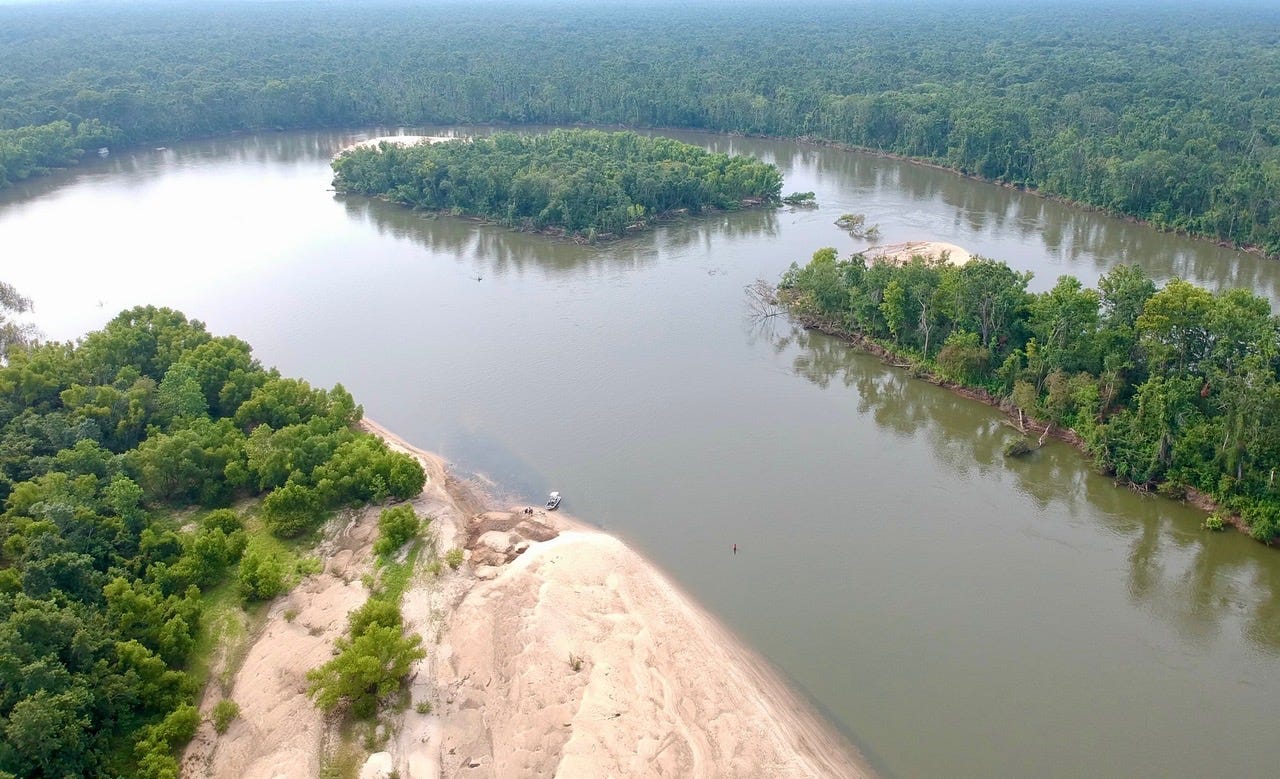Florida lawmakers are working on a bill to prevent drilling near critical waterways
Panhandle state lawmakers are drafting a bipartisan plan that would stop future drilling efforts near the state's critical waterways, including the Apalachicola River and Bay.

Florida lawmakers in the Panhandle are working on legislation to protect the state’s critical waterways from oil and gas drilling after a proposed plan to drill near the Apalachicola River received widespread pushback from coastal residents.
“I believe that we should not have any drilling near our critical waterways,” said state Rep. Jason Shoaf (R-Port St. Joe). “Everything that happens upstream impacts us at the coast.”
Over the last year, thousands of residents have sent letters to the Department of Environmental Protection and the governor’s office, calling on them to halt a proposed plan to allow exploratory oil drilling near the river, which empties into the Apalachicola Bay.
“There's a large portion of the fisheries in the Gulf that spawn, hatch, start their life off in Apalachicola Bay,” Shoaf said. “Even though it's a very small chance for something to happen, any chance at all at wiping out that entire nursery is unacceptable.”
Right now, state law prohibits drilling of any kind within a mile of the state’s critical waterways, which includes the Apalachicola River and Bay.
Shoaf says the legislation he’s working on with state Rep. Allison Tant (D-Tallahassee) would increase that mandatory distance, but it’s unclear how far it would go.
“It’s not a mile,” Shoaf said. “But it's not three miles because then there is no drilling anywhere in the state.”
Shoaf, who works in the oil and gas industry, says he doesn’t support an outright ban on drilling in the state, but he wants to make sure that the state’s critical waterways are protected.
In April, the department signaled its intent to allow Clearwater Land and Minerals LLC to look for oil a little over a mile from the riverbank. A final permit hasn’t yet been issued, and an administrative law judge is weighing the legality of such a move.
It remains unclear if the legislation would prohibit DEP from issuing a final permit to Clearwater for the proposed drilling site, Shoaf said. “We really need to get an attorney to opine on this.”
Gil Damon, founder of the Downriver Project, a nonprofit organization that advocates for clean waterways, described the proposed legislation as “a strong start.”
“Rep. Shoaf is showing what it means to stand up for our fishing and hunting tradition, for our seafood economy, and for our way of life on the Forgotten Coast,” Damon added in a text message. “That’s leadership.”
The Downriver Project has worked to mobilize residents and bring other environmental advocacy groups together to oppose the drilling proposal.
Through the organization’s website, residents can submit a form email to the governor’s office to speak out against the drilling plan. So far, more than 3,200 people have sent a letter. Those letters of opposition are in addition to more than a thousand emails that have been sent to DEP since early last year.
Tallahassee Republican state Sen. Corey Simon — whose district also includes counties along the Big Bend coastline — is finalizing draft legislation that would bring more transparency to DEP’s permitting process.
Simon says the goal is to make sure “that the folks in these communities are aware of what DEP is going through and how they're making these decisions on issuing permits in the future.”

